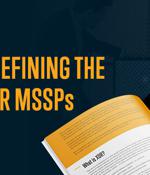Security News

In this Help Net Security interview, Steven Furnell, Professor of Cyber Security at the University of Nottingham, illustrates how small and medium-sized businesses (SMEs) must reassess their risk...

Reducing costs is the biggest priority for Australian SMEs. Due to increasing costs and higher interest rates in the Australian market, SME leaders were found to be seeking "Growth without additional cost," the report said, in an effort to drive productivity enhancements through technology optimisation rather than through more spending.

57% of SMEs have fallen victim to at least one cybersecurity breach, among whom 31% reported that their business experienced a breach within the past 12 months alone, according to Guardz. The survey findings highlight a glaring disparity between businesses' perceived readiness and the actual state of their cybersecurity protection: An overwhelming 70% of respondents are confident that their businesses are adequately prepared and resilient enough to withstand a cyberattack.

This article examines how small and medium-sized enterprises can use Wazuh to improve their cybersecurity. As an open source security platform, Wazuh allows SMEs to take advantage of its large and active community.

Finally, SME security professionals frequently struggle to learn, integrate, and maintain the various security tools in the organization, limiting their ability to address threats and keep attackers out. To mitigate these threats, SMEs need simpler and well-integrated cybersecurity tools like XDR. XDR provides multiple tools that would otherwise be cost prohibitive to acquire and then also provides these tools pre-integrated, which is also challenging for SMEs to achieve.

Finally, SME security professionals frequently struggle to learn, integrate, and maintain the various security tools in the organization, limiting their ability to address threats and keep attackers out. To mitigate these threats, SMEs need simpler and well-integrated cybersecurity tools like XDR. XDR provides multiple tools that would otherwise be cost prohibitive to acquire and then also provides these tools pre-integrated, which is also challenging for SMEs to achieve.

SMEs are most commonly using MSPs to support their internal IT team, though almost one-third use one to completely manage the IT program. SMEs rely most heavily on MSPs for cloud storage, system security, system management, and system monitoring.

Cybercrime continues to be a major concern, with 51% of SMEs experiencing a cybersecurity breach, a Markel Direct survey reveals. In this survey that polled 1000 respondents, Markel Direct explored the issue of cybercrime and its impact on the self-employed and SMEs.

Most of us have heard the three primary approaches mentioned - Native XDR, Open XDR and Hybrid XDR - but still don't understand the key benefits and drawbacks of each. Native XDR. A single vendor that offers all components of an XDR solution is considered Native XDR. This means that the buyer will not need to purchase and integrate additional technology solutions into the Native XDR platform to enjoy the benefits.

SMEs see remote work as an increased risk to their business. As a result, 77% of SMEs see remote working as an increased risk to their business.